This is the final part of the first season of Ancestral, Wild Empowerment (AWE) and also a post discussing what is to come, to tide us over until the second season begins early next year.
As this is the final AWE of the calendar year, it is illustrated with a macro-season by macro-season collection of galleries, each of the same view from my study window. I quite like having this record and it is a pleasure to share it here.
AWE so far has been a wide-ranging introduction of sorts, merely dipping our proverbial toes into the river of this vast whole. A river which lazily flows back in time, all the way to the millennia before we were even considered entirely modern humans; essentially, we’ve been living in what we currently call wild places forever, back then though, we called them home—and I’d like us to be able to do the same, in the now, to be able to consider nature and our resourcefulness as a pathway to home.
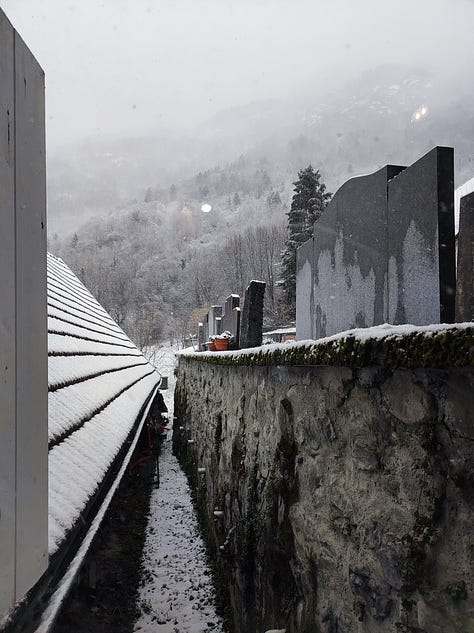



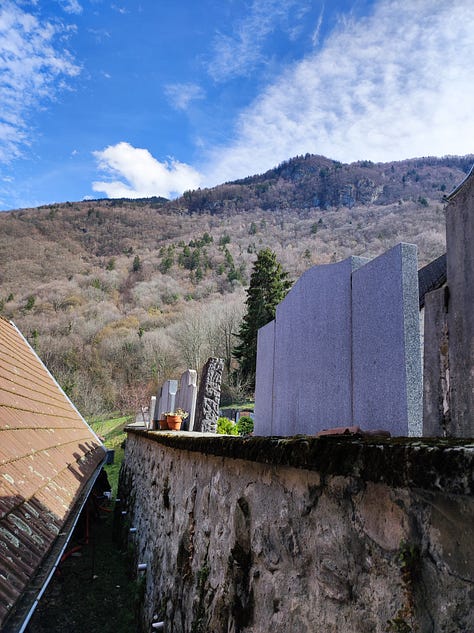

When I began to visualise this series, I knew I wanted to accomplish several things.
I wanted to share knowledge I already possess, demonstrating how my own abilities and understanding of nature have grown over time. Closely linked to this, I also wanted to make it clear that I am still a student and this is a topic with no end. We will never be able to reach a point where we know it all—we will always find more to learn. For me and, I suspect, you, this is a very good thing.
Learning how we can rediscover our part in a natural, vast whole, is something which should be humbling; it should be awe-inspiring. It should thrill and entice both. Like all the best subjects, the more we learn, the taller it makes us walk, lifted by the ancestors, reducing our own heavy tread on the earth and making us lighter in all things.
I wanted to share my passion flowing from and through these ancestral skills, demonstrate how they translate to an exponential—and transferable—growth in confidence in all things.
I wanted to make this a fun series, but also one to challenge you, the reader. I wanted to show how important it is to feel challenged, how this is not a negative, but something we can tap into and use to propel us forward in that stream of knowledge and skills.
This bears rewriting—I wanted to show how immense and potentially overwhelming learning to live in a different way can be. I also wanted to show how it need not be so, demonstrating how we can start with a simple, single step. That step is learning to look at the natural world around us, using all the senses we possess, thinking deeply about—and noting down—all we observe. Observation is a skill which we can hone, sharpen and craft to a razor edge, if we so choose and are willing to invest time into the effort.
And that is time well spent.
If you are reading this, then it is likely you are already somewhere on this path. You are already observing and questioning, both your local area and also, crucially, yourself. I suspect you feel that something is missing in our modern, hectic and stressful existence and, perhaps, you already know the answer lies within nature.
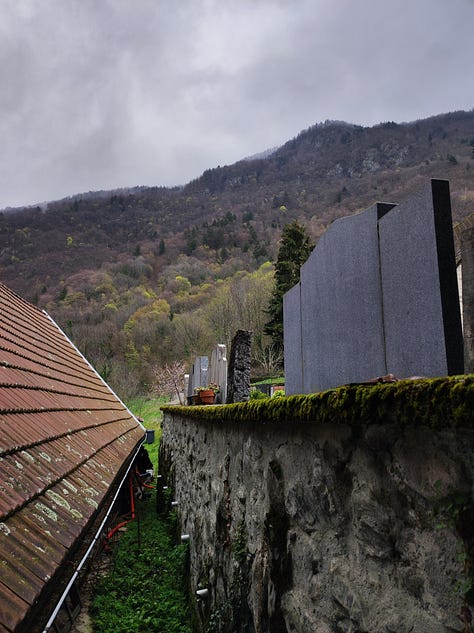
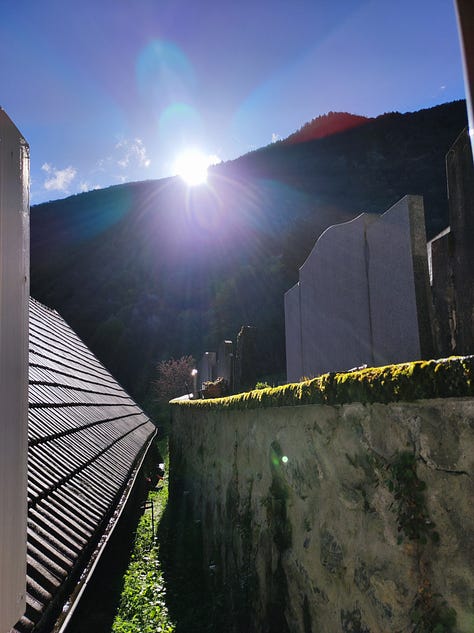
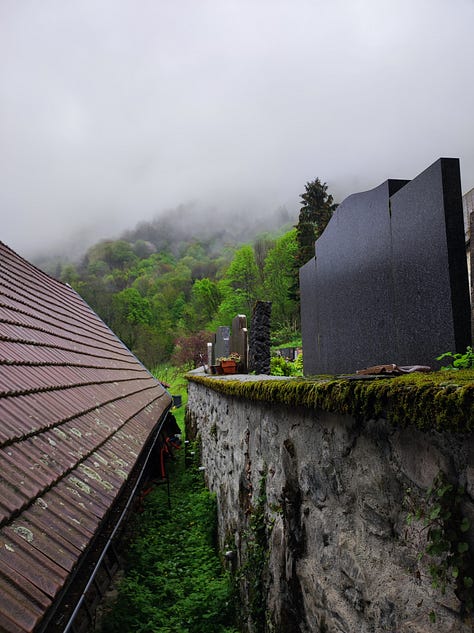
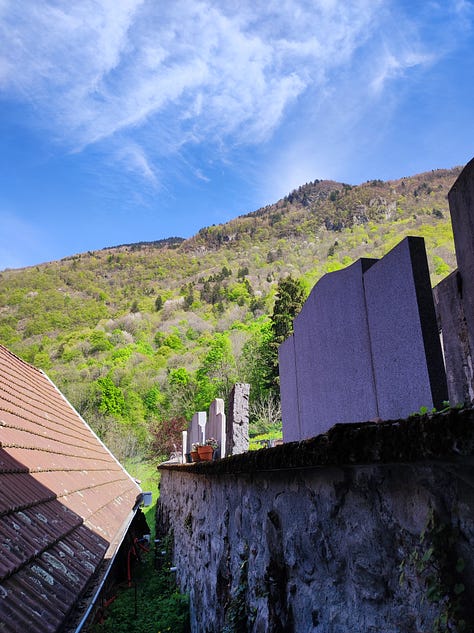


For all our history and prehistory, bar a very, very small period of recent time, we have existed as fisher-gatherer-hunters. In the last few decades, there has been an explosion of different methods of calming the self, reducing that artificial stress of modern life—forest bathing, hygge, simple and slow living, self-sufficiency, tiny-houses, off-the-grid and intentional living, mindfulness, certain diets, downshifting, wilderness therapy excursions and classes, and so many more. One can argue that each has a direct connection to the time our ancestors were living with and from the land, gathering all they needed from the plants and animals around them, living in small and close communities, in shelters which were optimally constructed for warmth and protection, rather than ostentatious size.
We have begun to seek something we feel is missing and, I think, many of the answers lie in learning more about our connection with nature, knowing—truly knowing and questioning—each and every animal or plant or rock we observe, and seeking answers as to how we could use these to aid in our existence. (A brief aside—for our purposes here we do not have to take life needlessly, we can still practise many skills, such as tracking, hunting, or trapping, even plant study, without killing—something I mentioned during my recent series, A Fall in Time.) What we need to do, however, is switch our mindset to that of one of our ancestors, see the world through new, ancient, eyes.
It was during that woodland adventure I shared recently that I realised many of those skills and ways to see nature in a different light are still there, buried within us—it just takes a little work to unearth them, a little time, and a step back from the constant background noise of our modern societies.
I think, on the whole, the introductory season of Ancestral, Wild Empowerment achieved the aims and goals I had set myself. I have learnt much—and I hope you have too. This season has also aided in clarifying my thoughts on what is to come next but, for some time, I struggled to narrow down what the focus of the forthcoming, second season will be.
Up until last week, I had narrowed down the subject matter of the second season to three potentials. I was unsure which to choose, none felt entirely right. It seemed a narrowing of focus, a too swift narrowing, potentially creating a series of rapids or turbulence along that river of knowledge. Then, at some point—whilst washing the dishes, a task where many ideas seem to emerge—the focus of the second season fell into place, perfectly formed and ready to go.
I arrived at the answer idea when I asked myself the question—what is it that a hunter-fisher-gatherer would do first, in any given area? Would they light a fire (yes, research suggests this is extremely common, everywhere a group stops, even if only for a short period of hours), would they look for water, or food, or build a shelter? The answer had been staring me in the face the whole time.
Season Two of Ancestral, Wild Empowerment will focus on ‘mapping’.
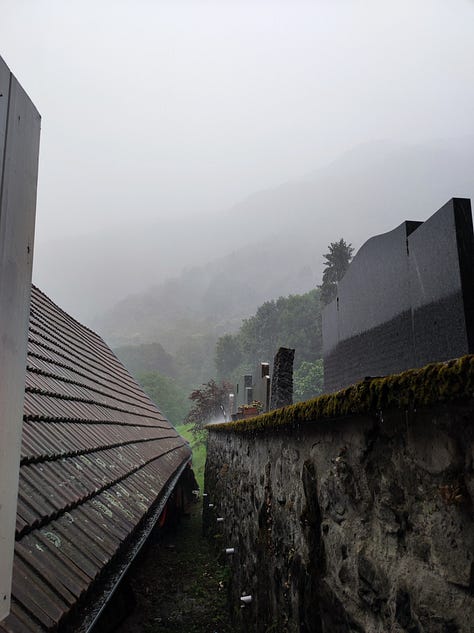
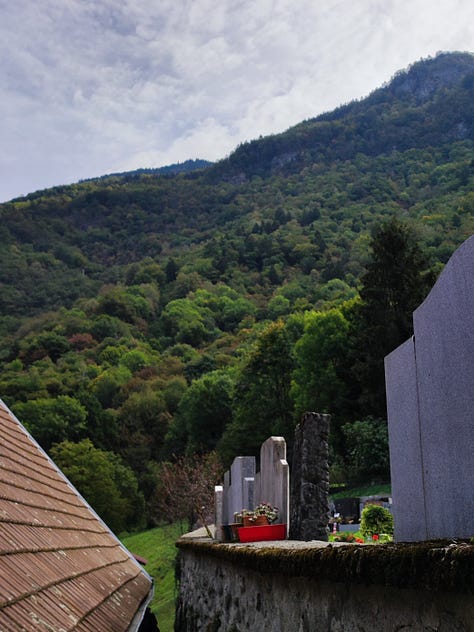



This is something I have touched on in several of the parts of Season One, such as A Walk, as an Ancient Child. It is a crucial part of the process of thinking like one of our ancestors and bears further investigation and sharing. It will also allow our focus to look at different facets of what it means to study nature in order to live as a part of it—we will be able to look at shelter and home, food and water, fire and warmth, tools, seasons, growth, and decay, and other parts of this vast whole, each through the lens of learning a place, understanding the opportunities it offers and, ultimately, how best to focus and use those opportunities to enhance and enable our lives.
Recently, I have realised I am spending far too long tied to by keyboard. As time is so precious and I feel I only have so many hours each day in which to work—and find further work—I have not taken advantage of the land around me as I should, rarely leaving the house.
This is not a good thing. Ironically, it is a symptom of the very problem I have been trying to address with AWE, where we equate our time with a monetary value, rather than with one of quality of life and what is actually real, what matters. Once realised (whilst washing those dishes that day), the solution seemed obvious—I can take time out of my day, out of my week, to take a walk in the local woods, uphill and down, see all those different facets of nature which I could use if I needed to, discover others I have yet to learn, and generally map my local area as I would if I were one of the ancestors.
This tricks my strange brain into ‘allowing’ the time. It is not ideal, in that I should allow such an activity without thinking of ‘work’. Yet due to the way my brain works, this will help.
Crucially, such walks will not only help to illustrate each part of AWE Season Two, with photos, material, and even a planned hand-painted map, but they will provide a focus for another idea I have had—collaboration.
I read the wonderful posts many of you share and I know that nature and walking within it are strong parts of your own identities. As such, if you wish to take part in this process—talk of your local walk, approaching it through the eyes of one of your ancestors, say so! Either pop a note in the comments, send me a message via Notes, or hit reply to this email if you are interested—I will then add you to the list and send on further details.
These posts will be free for all to read, as opposed to the pay-walled parts of AWE. They will be guest posts, with your publication (if you have one) and name front and centre. I do not envisage the first of these to be published before the second half of January, at the earliest, so there is no rush but, by all means, if you are interested, do start looking at your local area through the lens of your ancestors!
By discussing mapping and moving through a landscape—in time and memory, as well as space—we will provide a solid foundation for what is to come in further future seasons, built on the ground already cleared during season one.
I hope you are as excited about this as I am!
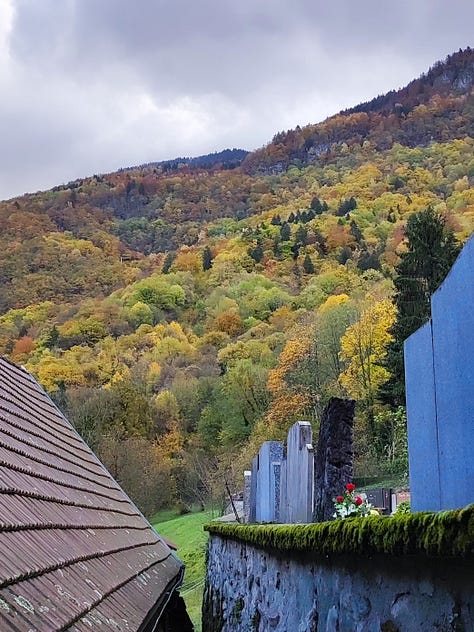




There will be a longer, more focussed introduction to Season Two of AWE sent in January. Over Christmas and New Year I shall be focussing on planning this season carefully, whilst still sending my fiction and my Edges & Entries letters.
The majority of my AWE posts will be paid subscriber only, with a healthy preview and, as such, I am offering a special offer on annual subscriptions, 20% off the current price until the 25th of December, 2023. This amounts to 36% off the price of a monthly subscription over the same period. I currently charge the lowest rate Substack allows, but this shall be rising in the new year so, if you have been considering a paid subscription, now is the time to treat yourself (or buy a gift subscription for someone else!).
For now, I shall sign off with wishing you a safe, peaceful and wonderful midwinter season, however you celebrate it. If Santa does come, I hope he brings you books, perhaps field guides, or maybe a pocket magnifying field lens.
I am very much looking forward to Season Two of Ancestral, Wild Empowerment, I feel as though we are only just getting started—see you then!


I can't begin to tell you how much I enjoy your writing, this series and A Fall in Time. I haven't had a chance to dive into your fiction yet, but soon. Since discovering them, I've been revitalized. If I don't get to spend an hour in the woods each day, I fret. And I can't believe all the things I've discovered that were there the whole time.
There are a lot of excellent writers on Substack, and I'd love to support them all, but my finances won't stretch that far. I'm delighted to support you, though, and hope lots of people take advantage of your subscription offer.
I want to take part in this. Can you explain a little more about what's involved, how you see us participating?
Whoop whoop, mapping. I'm in! Can't wait to see how this unfolds. Of course, as someone who also maps and has a substack about maps (albeit art maps), I'd love to collaborate, so I'd like to know a little more about what you mean when you say "look through the lens of our ancestors" to help me think about what I could offer. Let me know! 😊